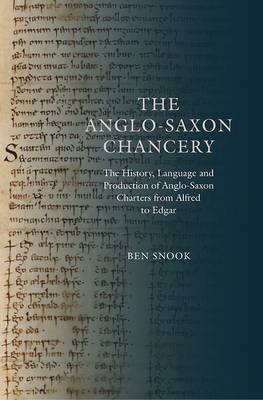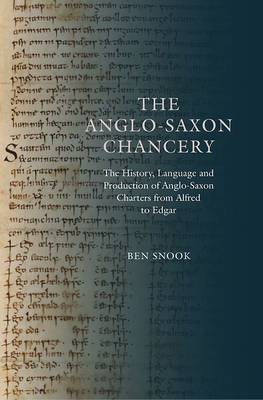
- Retrait gratuit dans votre magasin Club
- 7.000.000 titres dans notre catalogue
- Payer en toute sécurité
- Toujours un magasin près de chez vous
- Retrait gratuit dans votre magasin Club
- 7.000.000 titres dans notre catalogue
- Payer en toute sécurité
- Toujours un magasin près de chez vous
The Anglo-Saxon Chancery
The History, Language and Production of Anglo-Saxon Charters from Alfred to Edgar
Ben Snook
177,45 €
+ 354 points
Description
An exploration of Anglo-Saxon charters, bringing out their complexity and highlighting a range of broad implications. More charters survive from Anglo-Saxon England than texts of any other type. In a society in which the ownership of land was fundamental to status, wealth and power, the charters which gifted and guaranteed landholdings were crucial not only as legal documents but also as instruments of political power. As responsibility for their production was increasingly centralised at the royal court in the ninth and tenth centuries, charters also became vehicles forroyal and religious propaganda, reflecting the dynamic and creative culture of tenth-century England.
Through an analysis of the extraordinarily sophisticated Latin in which these documents were written, this book demonstrates the literary ambitions of their draughtsmen (who may certainly be considered as Anglo-Latin literary authors in their own right), and also sheds light on the political ideologies of Anglo-Saxon England's most powerful and enigmatic kings and churchmen. Most tantalising of all, perhaps, is the fact that the language of royal charters, which may preserve some of the very words uttered by the king, provides an unparalleled view of the mechanisms by whichthe developing kingdom of England was governed. Not only does it indicate the increasingly sophisticated bureaucracy of an administratively advanced state, but it also reveals an atmosphere of literary and cultural attainment, emanating directly from the king's court, as rich as any in the early medieval Insular world. Ben Snook teaches History at the Godolphin and Latymer School, London.
Through an analysis of the extraordinarily sophisticated Latin in which these documents were written, this book demonstrates the literary ambitions of their draughtsmen (who may certainly be considered as Anglo-Latin literary authors in their own right), and also sheds light on the political ideologies of Anglo-Saxon England's most powerful and enigmatic kings and churchmen. Most tantalising of all, perhaps, is the fact that the language of royal charters, which may preserve some of the very words uttered by the king, provides an unparalleled view of the mechanisms by whichthe developing kingdom of England was governed. Not only does it indicate the increasingly sophisticated bureaucracy of an administratively advanced state, but it also reveals an atmosphere of literary and cultural attainment, emanating directly from the king's court, as rich as any in the early medieval Insular world. Ben Snook teaches History at the Godolphin and Latymer School, London.
Spécifications
Parties prenantes
- Auteur(s) :
- Editeur:
Contenu
- Nombre de pages :
- 252
- Langue:
- Anglais
- Collection :
- Tome:
- n° 28
Caractéristiques
- EAN:
- 9781783270064
- Date de parution :
- 19-03-15
- Format:
- Livre relié
- Format numérique:
- Genaaid
- Dimensions :
- 156 mm x 234 mm
- Poids :
- 530 g







